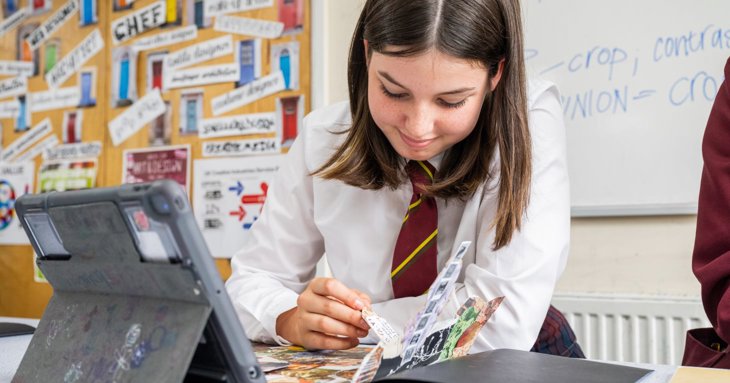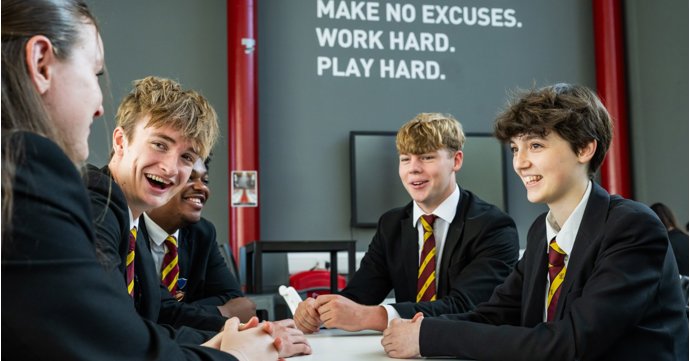Leading Gloucestershire grammar school The Crypt School is fostering a passion for technology among its students through innovative and engaging cyber activities — having brought in a ban on using mobile phones during school hours.
Reflecting its focus on the development of digital skills as well as keeping students safe online through the positive use of technology, The Crypt's decision to not allow students in years 7 to 11 to use their phones during the school day came into effect in September 2024.
School leaders say the ban allows students to focus on learning and achieving and has helped to develop 'a sense of fun', with students commenting that it has made it easier for them to interact with their friends.
The Crypt follows many other schools in the UK in banning the use of mobile phones, after new Department for Education guidance was published in February 2024, backing headteachers in prohibiting their use during the school day.
The school says the reaction to the ban from students has been very positive, with Year 9 student, Emilie, commenting: 'I'm glad we aren't allowed to use mobile phones during the day — we have no reason to.'
And fellow student Nivedha reflected that: 'Not having a phone at school is better so we avoid distractions and focus on our learning. It also makes it easier to make friends and interact with them in person.'
The ban does not include sixth form students, who can only their phones in the sixth form centre.
Elsewhere, the Crypt's female students are leading the charge in the world of cyber security, winning a national coding competition which promotes gender diversity, CyberFirst Girls, in 2024.
The
school was recently awarded the 'I Belong' award from the National Centre for
Computing Education in recognition of its work encouraging girls into computer science, with the
number of girls studying the subject at GCSE and A level having increased in
recent years.
The school also received a Cyber First award in 2024 for its work promoting and encouraging excellence in cyber security both in and outside of lessons, including through forming meaningful relationships with external companies and running an extracurricular coding club, offering students hands-on experience in programming to motivate and prepare them for future careers in digital sectors.





















